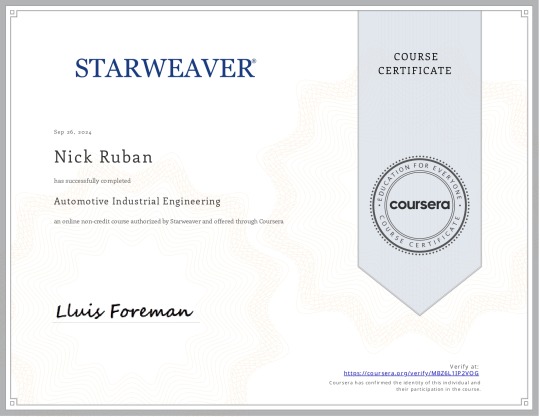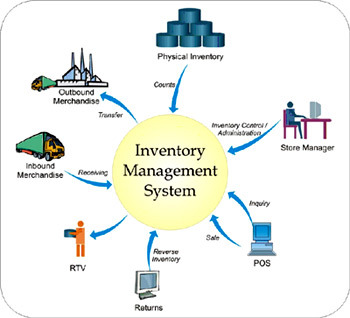#logistics and supply chain manager
Explore tagged Tumblr posts
Text
Logistics Coordinator Jobs in L and T Company in Chennai | Best Logistics Jobs 2023
Introduction – Logistics Coordinator Jobs in L and T Company Logistics Coordinator Jobs in L and T Company: L&T has Published a notification for the vacancy of Logistics Coordinator The educational qualification required to apply for this L and T Company is a Diploma or Degree Interested and eligible candidates can apply for L & T Company. There is enough time to apply for any job. Read L & T…

View On WordPress
#logistics and supply chain management jobs#logistics and supply chain manager#Logistics Coordinator Jobs#logistics executives#logistics job vacancy#logistics jobs bangalore#logistics jobs for freshers#Logistics jobs in Chennai for experienced#logistics jobs in chennai parrys for freshers#logistics walkins in chennai
0 notes
Text
Learning that my ex launched his design business with his best friend is sweet and I’m proud of him 🥲
#right before we broke up I went over to his condo to give him a housewarming present#and he was telling me about all the renovations he had planned and his desire to do that rather than logistics and supply chain management#LOL and then we broke up that night but it was mutual#it’s nice to know that he still has my housewarming present#I saw the book in the background in one of the project photos on his website
3 notes
·
View notes
Text
Shadowfax Expands Reach With Launch Of Distribution Centre In Port Blair
PORT BLAIR: Logistics firm Shadowfax, on Monday, announced the opening of its inaugural hub and distribution center in Port Blair. The company calls it a significant milestone in its journey to reach 100% or almost 20,000 pincodes of India by March’2025.

Abhishek Bansal, Co-founder & Chief Executive Officer at Shadowfax
With the newly established hub in Port Blair, Shadowfax aims to foster inclusivity in its service network, ensuring every corner of the country receives seamless access to its array of offerings. E-commerce enterprises, Small and Medium-sized Enterprises (SMEs), Direct-to-Consumer (D2C) brands, marketplaces, and most importantly the island’s residents can anticipate a comprehensive suite of services, spanning from Reverse Logistics to Express Delivery.
Leveraging strategic partnerships with leading airline companies, Shadowfax plans to deliver speed and efficiency, including assured Next-Day Delivery to the island. It will also provide reverse shipping services, doorstep quality checks, and hand-to-hand exchanges. The island customers can also expect location-based delivery via Shadowfax’s proprietary product SF Maps — an AI-driven mapping system.
Abhishek Bansal, Co-founder & Chief Executive Officer at Shadowfax, said in a statement,” This milestone marks a pivotal moment in Shadowfax’s mission to connect every town and village, in the remotest part of the country, into our network — delivering new age solutions to every customer. Port Blair holds immense importance in India’s landscape, and we are thrilled to bring our unparalleled logistics expertise to its citizens.”
#3rd party logistics#deliveryservice#ecommerce#supply chain management#logistics#logistics services in india#courier delivery service#same day delivery#shadowfax#d2c#next day delivery#delivery#forward parcel#festive delivery#logistics solutions#logistics sector#quick commerce#e commerce#shadowfax prime#shadowfax delivery partner#port blair
2 notes
·
View notes
Text

🚘 Many of you know me as a project manager in the field of transportation and logistics. Today, I’m excited to share that I’ve expanded my expertise to include Automotive Engineering.
🎓 I’m thrilled to announce that I’ve completed my studies and earned a certificate in “Automotive Industrial Engineering” from Starweaver on Coursera! Huge thanks to Lluís Foreman his invaluable guidance and support throughout this journey.
#companies#technology#brands#engineering#cars#tech#innovation#old cars#business and industry sectors#history#automotive#british automotive#learning#continuous improvement#continious learning#certification#certified#industry#automobile#plants#production#supply chain management#management#logistics#innovation car#innovative#design#car#automotive history#coursera
5 notes
·
View notes
Text
Which Warehouse Does Your Business Need?

You need a warehouse.
You have pinpointed the most optimal location and finalised on all the high-tech equipment and machinery to function with ease, but how do you decide which warehouse building is best suited for your operations and functions? Let’s find out.
The Standard Warehouse
For operations that only need basic walls, a roof and some clear space, the standard warehouse is the way. These warehouses can be made in any size required and are extremely versatile.
It is possible to fit them with skylights and windows as well as with multiple gates, ramps and docks. They are a popular solution for almost every industry, providing storage for machines, raw materials and equipment, and products in production; serving as transshipment points in logistics; storing goods for retailers and wholesalers; acting as distribution centres for e-commerce; and even housing donations and relief supplies for non-profit organisations.
A standard warehouse can be easily adapted to specific equipment and spatial requirements by the warehouse developer and are extremely cost effective for businesses that require minimal retrofits to get going.
The Container Warehouse
This is a specific kind of storage warehouse is a stopover for goods coming or going from freight transport. These warehouses are used to consolidate or deconsolidate freight goods to prepare them for the next legs of their journey. Or in other words, it is a temporary storage for the goods to wait a little for other goods to come and fill a container up, before they can be shipped off. The challenge here is to have a system that allows storing, tracking and retrieving the goods easily and efficiently.
Container warehouses need to be located close to ports, airports, or major railway hubs. These warehouses can be designed for efficient cross-docking and provision can be made for ample parking space for holding trucks even in case of demand surges. These warehouses are also equipped with stacking racks, crane systems, container frames, floor anchors, proper lighting, and robust security systems.
The Open-Air Warehouse
For large and heavy items that are difficult to move in and out of warehouse dock doors, open-air warehouses provide an efficient storage solution. Custom-designed racks for open yard storage can offer protection from atmospheric elements and play a key role in keeping the goods safe. Typically, the warehouse is an open area with space demarked and fenced in with walls with a high level of security to safeguard the assets.
Depending on the sensitivity of the goods and the extremities of the climate, storage can be covered or partially roofed. Goods are also protected by covering them in plastic wraps or tarps. These warehouses are commonly used to store vehicles, spare parts, machines, and raw materials for construction, metalworks, or timber sectors. The design of open-air warehouses focuses on shielding goods from harsher natural elements like direct sun or snow but may not address milder elements like humidity, wind, dust, and temperature fluctuations.
The Industrial Warehouse
This is the modern-day factory which may span across multiple halls and floors and can be tailored to integrate advanced technology and equipment. The industrial warehouse can be designed to have spacious loading and unloading areas; ample space for machinery, equipment, goods, and workplaces; high ceilings and large doors for the transporting of goods and large machines, even indoors; bright administrative and office areas; parking spaces for delivery and staff vehicles; pleasant social and relaxation areas for the workers; strong load-bearing floors; a reliable energy supply and ventilation; independent lighting systems for each work area and fire protection measures like fire alarms, smoke detectors, and fire extinguishers.
These warehouses are especially popular for manufacturing companies, energy and utility companies and businesses in the food and beverage industry.
The Custom-Made Warehouse
When your business needs are too complex to be housed in a pre-made standard warehouse, you need a warehouse designed around your requirements. These are called built-to-suit warehouses. They provide a high degree of customisation and can be made to create the ideal environment needed for your operations and goods.
Need a cold storage with consistent temperature and humidity, immaculate hygiene and protected electrical circuits? It is possible. Need a chemical warehouse with good ventilation systems, fire containment measures and specialised storage? Also, possible. Retail warehouses with space for smart racking and processing machines, auto warehouses with complex assembly lines or heavy industry that need tall lifting equipment and sturdy densified floors, a custom-made warehouse lacks for nothing.
The Automated Warehouse
If you are a business that uses machines to do it all, then an automated warehouse is what you are looking at. These are computer-controlled environments with automated racking and shelving, conveyor and retrieval systems. While the investment cost is definitely high, the efficiency is unmatched. These warehouses are sought by large trading companies, global e-commerce giants, logistics parks in India and manufacturing behemoths.
At the end of the day, you know your business needs better than anybody. It is crucial thus, to find a warehouse developer who is proactive in understanding your functional requirements and who works with you to overcome any infrastructural challenges in a collaborative way. At Horizon Industrial Parks, our teams specialise in delivering custom-made warehouses as well as providing swift plug-and-play solutions that can get your operations running in no time. To learn about what our customers like about us, click here, and visit our website to connect with us for exploring collaboration opportunities.
#warehouse#business#ecommerce#supply chain management#manufacturing#automobile#last mile delivery#logistics#real estate
2 notes
·
View notes
Text
Anveshan - bba event management colleges in india
2 days In-house Management event for 1st Year students to motivate and to build their confidence. Focusing on communication, financial, crisis mgmt, marketing..
#bba colleges in belgaum#top bba colleges in belgaum#bba colleges in karnataka#bba in event management#bba event management course#bba event management colleges in india#bba in digital marketing#top bba colleges in karnataka#best bba colleges in karnataka#bba in event management colleges#bba in digital marketing colleges#colleges for bba in event management#bba in event management colleges in india#bba in logistics and supply chain management#bba in financial market#bba in business analytics#bba in supply chain management#bba financial management#kle bba college belgaum#kle cbalc belgaum#best bba colleges in belgaum
2 notes
·
View notes
Text
Mba In Supply Chain Management In India | ILAM India

MBA in Supply Chain Management is a program that teaches how to handle the movement of goods effectively. It's a good option for those interested in logistics and operations. ILAM India is known for offering this course and is a great place to study it. +91-9717094063 #ILAMINDIA #MBALogistics #MBASupplyChainManagement #MBALogisticsManagement #LogisticsManagement https://www.ilamindia.in/mba-in-logistics-supply-chain-management.php
#mba logistics in delhi#mba in supply chain management in bangalore#mba in supply chain management in india#mba in supply chain management#mbacollege#mba#mba admissions#mba courses#mba in supply chain management in pune#mba students
2 notes
·
View notes
Text
Larry Savage Jr Birmingham - Logistics Communication Skills Explained
Improving your logistics communication skills is important to create a strong network of contacts and become an expert in the logistics industry. You should know this because many profit and business opportunities in the logistics industry stem from the relationships that partners and clients form.
So, to compete in the logistics industry, one must build effective communication with both potential and existing partners and customers. This article provides tips for boosting your communication skills in logistics, offering insights from logistics networking specialists. You can also read Larry Savage Birmingham – 7 Books to Read to Improve Your Communication Skills to build connections with partners for your business.

Here Are Some Tips To Improve Logistics Communication:
Pay Full Attention
Effective communication always starts with listening. Misunderstandings in communications are common with people who don’t have listening skills. All people have responsibilities, so wasting other people’s time can be bad for someone in the logistics industry.
It takes more than just physical presence to attend a logistics event. You must give your full attention in every meeting to avoid missing important details and forcing your partner to repeat information they've already said. Anyone can tell when you're not paying attention, and that's not how you should interact with current or future partners.
Practice Active Listening
You must listen actively to truly understand your logistics partner. Active listening in logistics communication requires understanding, responsive engagement, and retention of the information the other person is conveying.
Understand What’s Not Being Said
You should also be able to recognize when a prospect is lying. These are essential skills to have, and you won’t succeed until you develop the ability to read between the lines.
Speak In Specifics
You should be specific to be influential in logistics. You can prove to others that your freight forwarder is the ideal fit for his services and working style by providing concrete instances or tales to bolster your arguments.
Be A Logistics Expert
It is impossible to be particular if you do not understand what you're talking about. You should prove that you are an expert in the logistics sector and you know the issues, practices, and purchasing trends.
If you want to locate other logistics specialists who are true professionals in their freight forwarding industry, you should join a logistics network that carefully selects its members.
Know What They Don’t Know
It's not necessary to know everything about the logistics industry to be considered an expert. But you should be knowledgeable enough to manage the cargoes of your partners, have excellent assistance, and be an outstanding operator. You should also need to depend on your prospects to provide the missing information.
Recognize your knowledge gaps and ask your logistics partner to assist you in filling them in. You won't lose transactions due to erroneous assumptions; they will respect your candor about what you don't know.
Final Thoughts
As you can see, there are many ways via which honing your logistics communication skills can assist you in creating beneficial relationships for your enterprise. Finally, read Larry Savage Jr. Birmingham- 7 Skills That Can Help You Become an Expert Logistics Specialist if you want to become a master of logistics.
#larry savage jr#larry savage jr birmingham#logistics business#logistics expert#entrepreneurial success#logistics professionals#transportation#proficient in logistics#Logistics Specialist#logistics networking specialists#artificial intelligence#supply chain management#business#business development
2 notes
·
View notes
Text

NAV stands for Navigation (or to navigate). We steer our customers to success through the rough route of complex processes and IT landscapes.
We provide Process consulting and Solution development services, enabling clients to discover the benefits of SAP’s Digital Supply Chain Platforms and Microsoft Power Platform.
#it consulting services#sap consulting#technology consultant#management consulting#supply chain management consulting#Microsoft Power Platform#Supply Chain#SAP S/4HANA#SAP GTT#SAP S/4 Hana#Transportation Management Consulting Services#Business Network for Logistics
2 notes
·
View notes
Video
tumblr
The significance of logistics in the market: you must know about the importance logistics do check the link below:- Main Role of logistics
3 notes
·
View notes
Photo

Managing Inventory for Logistic: Strategies for Effective Supply Chain Management
Introduction
Good inventory management is vital for logistic firms to guarantee on-time and efficient supply chain management. This entails the careful monitoring, control, and optimization of stock levels to decrease expenses while fulfilling customer needs. The Best Logistic Company in India in this blog, discuss some techniques for successful inventory management that logistics companies can use to bolster their supply chain management.
Important techniques
1. Adopt a Just-in-Time (JIT) approach:
A Just-in-Time (JIT) method involves ordering products right when they are needed to meet customer orders, thereby eliminating the need for excessive stockpiling. This way, companies can minimize their inventory while still meeting consumer demands, thus cutting down on inventory carrying costs and freeing up space.
2. Use Forecasting Techniques:
Logistics companies can use forecasting techniques to predict customer demand and adjust inventory levels accordingly. This approach ensures that inventory levels are optimized to meet customer demand, reducing the risk of stockouts or excess inventory.
3. Utilize Technology:
Technology can help logistics companies manage their inventory more efficiently. Inventory management software can track inventory levels, forecast demand, and automate the reordering process.
4. Implement an ABC Analysis:
An ABC analysis categorizes inventory into three categories based on it’s value and usage.
Class A inventory is high-value and fast-moving,
Class B inventory is medium-value and medium-moving,
Class C inventory is low-value and slow-moving.
By categorizing inventory, logistics companies can prioritize inventory management efforts and allocate resources more effectively.
5. Adopt a Continuous Improvement Approach:
Continuous improvement involves constantly monitoring and optimizing inventory management processes. Logistics companies can use data analytics to track inventory performance, identify inefficiencies, and make data-driven decisions to improve inventory management.
Logistic companies can benefit greatly from implementing effective inventory management strategies. By adopting a JIT approach, using forecasting techniques, utilizing technology, implementing an ABC analysis, and adopting a continuous improvement approach, logistics companies can improve their supply chain management and provide better service to their customers.
#Inventory Management Strategies For Logistic And Supply Chain#Effective Inventory Control Methods For Supply Chain Management#3pl in India#Top logistic company in India#Best logistic company in India#3pl service provider
4 notes
·
View notes
Text
Valeo Hiring Management Trainee | Fresher Graduates must apply this role | Chennai location
Introduction Valeo Hiring Management Trainee: Valeo has Published notification for the vacancy of Management Trainee The educational qualification required to apply for this Valeo is Finance Graduates Interested and eligible candidates can apply for Valeo. There is enough time to apply for any job. Read Valeo date, last date to apply, full details of vacancies carefully. As per Valeo…

View On WordPress
#logistics and supply chain management jobs#logistics and supply chain manager#management trainee#Management Trainee Job Vacancy#management trainee jobs#management trainee jobs in government sector 2021#sales manager jobs in automobile industry#software quality manager#Valeo Hiring Management Trainee
0 notes
Text
#online mba#mba in logistics and supply chain management#supply chain management#Online Mba in Logistics
0 notes
Text
Nykaa, Licious amp up quick commerce game as consumers demand instant gratification
Beauty retailer Nykaa has launched a 10-minute delivery pilot in Borivali, Mumbai, as the rapid growth of quick commerce starts disrupting multiple product categories, pushing vertical players to find ways to drastically speed up deliveries.
Direct-to-consumer meat brand Licious is piloting deliveries of ready-to-eat food items in certain locations in Gurgaon in about 15 minutes though its promise remains half-an-hour delivery, while top fashion platform Myntra is piloting a 4-hour delivery plan in four cities, including New Delhi and Bengaluru.
Delivering instant gratification is clearly the need of the hour.
Nykaa’s quick commerce testing comes at a time when beauty has emerged as one of the top grossing categories on rapid delivery platforms such as Blinkit, Zepto, Swiggy Instamart and BigBasket’s BB Now.
The Mumbai-based beauty retailer is expected to add more pin codes in Mumbai for 10-minute delivery.
It plans to undertake a major update on its platform to launch the service in more locations, people aware of the matter told ET.
It is likely to have a separate brand name as well, they said.
“Certain low-priced items such as kajal pens, foundations or daily-use skincare items are finding traction on quick commerce…and platforms such as Nykaa stand to lose,” a senior quick commerce executive told ET. “Same goes for other categories such as fashion, home decor…where more vertical platforms will do quick deliveries.”
The CEO of a top quick commerce player said beauty in select stock keeping units (SKUs) are seeing one of the fastest growth rates among the new-to-quick commerce segments.
Industry executives, however, said that while horizontal quick commerce platforms such as Blinkit and Zepto are likely to retain a stronghold in grocery deliveries, there is a play in quick commerce for vertical platforms with a wide range of SKUs and deep supply-side relationships.
An email sent to Nykaa didn’t elicit any response until press time Tuesday. Licious also did not comment.
The Bengaluru-headquartered online meat shop “has been conducting one-to-two-hour deliveries in major markets and often delivering ahead of the promised time,” a person aware of the matter said. “In Gurgaon, there is a new experiment to reduce the time even further based on the density of orders,” the person added.
These developments come at a time when large horizontal e-tailers are firming up their quick commerce play. While Flipkart has launched its 10-minute delivery service Minutes in Bengaluru, Delhi-NCR and Mumbai, Amazon is working on its Q-commerce offering, ET has reported earlier.
Last week, Swiggy started the 10-minute food delivery service Bolt, and it is understood that its rival Zomato is planning to bring back a 10-minute food delivery option for certain items, too, in partnership with top cafes and quick service restaurants.
ET had reported earlier that even logistics players such as Delhivery, Shadowfax, Ecom Express and Xpressbees are entering the quick commerce space.
Also Read | Tiger Global conducts due diligence of Zepto dark stores as it eyes quick commerce
Beauty and the quick beast
Nykaa initially plans to take about 5% of its total SKUs to the quick commerce offering as it sees certain kinds of products being ordered for quick delivery, people cited above said.
Multiple industry executives told ET that several brands — depending on the category — are increasingly moving to same-day delivery in top metros, underscoring the changing nature of delivery expectations from consumers.
“This is what’s leading to the dynamic changes. You don’t want to wait for a basic kajal for two days. These products are selling fast and consumers want them instantly,” a senior quick commerce executive said.
Nykaa has been offering same-day delivery for orders placed before 12 pm and next-day deliveries are done for orders after 12 pm in four metros.
“For Nykaa, they already see about 10–15% of orders in the top four metro cities being delivered the same day while 85–90% of the orders get delivered by the next day,” a person aware of the numbers said.
A recent note from JP Morgan said Nykaa’s premium portfolio is growing the fastest. “Nykaa sees no major impact from increasing proliferation of quick commerce on account of its skew towards more beauty products (80–85% mix) and tier-II+ cities (66% contribution). Nevertheless, Nykaa aims to enhance same day/next day order delivery rate to 65% of orders in top 12 cities and 60% of the orders from top 110 cities through higher efficiency of its supply chain network and expects no major investment in the initiative,” the report said.
In August, Varun Alagh, cofounder and CEO of direct-to-consumer beauty and personal care brand Mamaearth, had said during the company’s analyst call that quick commerce was the fastest growing sub-segment within its online commerce channel. He had pointed out that quick commerce sales — most of which were coming from top 10 cities — contribute over 10% of the company’s online revenue.
Beyond instant gratification
Quick commerce along with highly competitive new brands is speeding up the premiumisation trend in the country, CLSA said in a recent note.
“We agree that quick commerce will accelerate premiumisation, but note the competitive intensity in premium categories is even higher than in standard categories, especially as new entrants are likely to target higher gross margin categories. This is especially evident in categories such as premium personal care, beauty, premium foods and premium home care, where competitive intensity from new entrants is the highest,” the brokerage said in the note dated September 24.
During the ET Startup Awards 2024 ceremony held on October 5, a panel discussion chaired by Infosys chairman Nandan Nilekani threw light on the rise of instant gratification in Indian consumption.
During the course of the discussion, Zepto cofounder and CEO Aadit Palicha said the rise of quick commerce was on account of factors beyond just instant gratification.
“When you look at why quick commerce is working in India, it’s largely because we’ve been able to cater to ‘small ticket multiple times a week’ use case that is unique to Indian commerce,” Palicha said. “If you go to the West, for example, it’s precisely the opposite — it (grocery shopping) is large baskets one or two times a month. The average frequency of transactions in India on grocery household essentials is 2.2 times a week… In the US it’s 2.4 times a month.
#3rd party logistics#ecommerce#logistics#supply chain management#deliveryservice#same day delivery#next day delivery#festive delivery#quick commerce#courier delivery service#d2c#instant delivery#e commerce#reverse parcel#delivery
2 notes
·
View notes
Text
Why study Logistics and Supply Chain Management courses?

Logistics and supply chain management is the powerhouse of the global economy. Logistics and Supply Chain Management is a service that ensures products move from their place of origin to the hands of consumers. It is all about planning, organising, transporting, and storing goods efficiently.
In 2015, the U.S. Department of Transportation reported that 18.1 billion tons of goods, worth about $19.2 trillion, moved through the country's transportation system.
By 2045, it is expected that the amount of freight will increase to 27 billion tons, and the value will rise to $38 trillion, showing just how important and large this industry is, even though it's often not given enough attention.
As businesses expand globally, managing supply chain management has become important. This means more skilled professionals are needed, and a logistics and supply chain management course teaches you this knowledge and grows your career.
What is the importance of Logistics and supply chain management?
One of the important factors for running a business is Logistics and supply chain management. It is a massive industry where global trade and business operate. Companies that use smart supply chain management methods can reduce costs and better use their resources.
Good supply chain management (SCM) helps businesses serve customers better. By planning, communicating, and working closely with suppliers, companies can Deliver products faster, Provide high-quality goods or services, and Reduce delays and errors.
Modern supply chain management systems help enhance Collaboration Between Suppliers And Customers. They also help Avoid stock shortages or overstocking, Reduce last-minute supply chain disruptions, and Ensure that customers receive products without unnecessary delays.
Modern supply chain systems use technology like Enterprise Resource Planning (ERP) and cloud-based tracking to share real-time updates. This allows suppliers, manufacturers, and customers to Track orders and deliveries accurately, Reduce miscommunication and delays, and Ensure timely updates on stock levels and shipments.
Why Get a Certificate in Logistics and Supply Chain Management?
Today, Logistics and supply chain management are the most important and fast-growing industries. So, getting a certificate in logistics and supply chain management shows employers that you have the skills and knowledge needed to succeed in this field.
Better Job Opportunities
Getting a certificate in logistics and supply chain management can help you find better jobs. Many companies prefer hiring people who have formal training in supply chain management, Which can also help you qualify for higher positions within a company, leading to career growth.
Greater Opportunities for Advancement
Logistics and Supply Chain Management courses, like the OTHM Level 7 Diploma in Logistics and Supply Chain Management, can help you get a promotion at your current job or find new opportunities.
This qualified diploma in logistics and supply chain management opens doors to rapid career progression, offering the chance to move into leadership positions and higher income brackets.
Career Opportunities After Completing Logistics and Supply Chain Management Courses
Getting a certificate in logistics and supply chain management from a top online course provider in the UK, like SBTL, can open the door to many job opportunities. Here are some examples of jobs you can get with a logistics and supply chain management qualification:
Supply Chain Manager
This job is very important in the industry. A supply chain manager makes sure that everything in the supply chain works well, from raw materials to finished products reaching the customer. They make sure that the business runs smoothly. Big companies value this role and offer good salaries and benefits to attract skilled professionals.
You can pursue this career after completing courses like the OTHM Level 6 Diploma in Logistics and Supply Chain Management.
Logistics Manager
A logistics manager plans and controls how goods and services move within a company. They ensure that the right products get to the right place, at the right time, and at the lowest cost. To do this job, you need to understand logistics well and have good problem-solving skills.
Completing courses like the OTHM Level 4 Diploma in Logistics and Supply Chain Management or the OTHM Level 5 Extended Diploma in Logistics and Supply Chain Management can help you land this job.
Warehouse Operations Manager
Completing the OTHM Level 5 Diploma in Logistics and Supply Chain Management will help you for jobs like Warehouse Operations Manager. A warehouse operations manager is in charge of managing goods in a warehouse. They make sure that inventory is stored and tracked properly and that deliveries go to the right places.
Transportation Manager
The OTHM Level 7 Diploma in Logistics and Supply Chain Management prepares you for a role as a Transportation Manager. A transportation manager manages the movement of goods and people. They plan routes, manage budgets for transportation, and have the chance to work in different locations worldwide.
Where to Study Online Courses for Logistics and Supply Chain Management in the UK?
If you want to study online logistics and supply chain management in the UK, the School of Business and Technology London (SBTL) is one of the best options. SBTL offers 250 Online courses with certificates in London, leading to an impressive 90% success rate and a 94% completion rate.
Read more: https://sbusinesslondon.ac.uk/why-study-logistics-and-supply-chain-management-courses
0 notes
Text
Optimizing Logistics in the UAE with Cutting-Edge Software
The UAE, a global hub for trade and commerce, relies heavily on efficient logistics operations. To streamline their businesses, logistics companies in the UAE are increasingly turning to logistics software. This sophisticated technology encompasses a wide range of solutions, including freight forwarding software UAE, freight management software UAE, transportation management software UAE, and shipping logistics software UAE.
Key Benefits of Logistics Software in the UAE:
Enhanced Efficiency: Automating tasks like freight booking, rate negotiations, tracking, and invoicing significantly improves operational efficiency for freight forwarders, NVOCC companies, and 3PL providers.
Improved Visibility: Gain real-time visibility into the entire supply chain, from order placement to delivery, enabling proactive issue resolution and better customer service.
Reduced Costs: Optimize routes, minimize empty miles, and negotiate better rates with carriers through features like carrier management software and route optimization tools.
Data-Driven Decisions: Leverage data analytics to identify bottlenecks, forecast demand, and make informed decisions regarding inventory management, warehouse transportation, and international logistics.
Increased Customer Satisfaction: Provide customers with accurate ETAs, real-time shipment tracking, and transparent communication, leading to higher customer satisfaction.
Types of Logistics Software in the UAE:
Freight Forwarding ERP Software UAE: Integrated solutions that manage all aspects of freight forwarding, including air freight, sea freight (ocean freight), lcl shipping, and freight transport.
Transportation Management Systems (TMS) UAE: Software that optimizes transportation operations, including route planning, dispatch, and fleet management.
Logistics ERP Software UAE: Comprehensive solutions that integrate with various systems across the supply chain, including ERP, CRM, and WMS.
Leading Players in the UAE Logistics Software Market:
The UAE market is witnessing a growing presence of global and local logistics software companies. Some of the leading players include [mention specific companies with a presence in the UAE].
Conclusion:
Logistics software is playing a crucial role in driving efficiency and innovation within the transport and logistics industry in the UAE. By embracing these cutting-edge solutions, businesses can gain a competitive edge, improve profitability, and enhance their overall customer experience.
Disclaimer: This article is for informational purposes only and does not constitute financial or investment advice.
#logistics companies uae#freight and forwarding uae#transport and logistics uae#air freight uae#airport freight uae#business logistics uae#freight transport uae#ocean freight uae#shipping and logistics uae#freight brokering uae#freight ocean uae#lcl shipping uae#sea freight uae#transportation management uae#transport logistics uae#air shipping uae#freight forwarding service uae#transport management systems uae#shipping logistics companies uae#global transports uae#transport and logistics companies uae#warehouse transportation uae#transportation logistics companies uae#logistics software uae#transportation software uae#shipping logistics uae#supply chain operator uae#transport and logistics services uae#carrier shipper uae#transport service logistics uae
0 notes